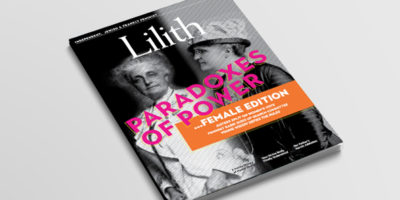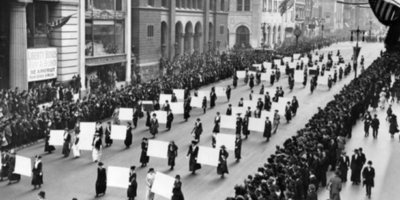Flying While Female
TURBULENCE ON EL AL
I was making my first-ever trip to Israel to present my research at a conference. My assigned seat was the middle one. To the left of me sat a female, fully bicultural translator. As the plane began to fill, an uproar began on my right. An identifiably ultra-Orthodox man was not happy. He parked his large carry-on bag in his seat and then proceeded down the aisle to speak to a flight attendant. The translator on my left clued me in—the man did not want to sit next to impure me. I, who have written optimistically about feminism and Orthodoxy not being an oxymoron, suddenly felt as if the most sacred parts of my being—Jewish, feminist, intellectual—were being tested.
A flight attendant arrived and asked if I would be willing to change seats. I hesitated. The translator was whispering anti-Orthodox sentiments in my ear. The flight crew was clearly getting ready for take off. Ultimately, I politely but firmly indicated that I would be keeping my seat, largely because I couldn’t bear the thought of telling my students any other version of this story.
After huffily stowing his luggage in the overhead compartment, the man to my right sat, face averted. I wondered if this trip was going to require me to rethink all that I had written about feminist debates going on within Orthodoxy.
As the meal service was starting, the tray table stymied me. To my great surprise, the man on my right assisted me. God only knows what was going through his head—a learned desire to be a mensch, amusement at and superiority over a hapless woman, an instinct to respond to “the face of the other” (as the philosopher Emmanuel Levinas might put it) that could not be extinguished? No matter, I was grateful for the practical help and the recognition of my humanity that it conferred. Uttering both “thank you” and “todah rabah,” I took my meal.
He asked me if I was Jewish, and why I was traveling to Israel. He was impressed, though also clearly surprised, that I was a professor. We proceeded to have a conversation hampered by his limited English and my even more limited Hebrew. At one point, the translator allowed us to cross the language barrier. When the plane landed many hours later, we all wished one another safe travels.
That El Al flight confirmed for me both the possibilities and the challenges of feminist Orthodoxy. In that confined space as in my scholarship, I was the middle woman who refuses to believe that feminism and Orthodoxy each has only one predetermined face that must be turned away from another.
In case you missed it: El Al is no longer allowed to ask women passengers to change seats in order to accommodate religious men.
HELENE MEYERS on the Lilith Blog.



